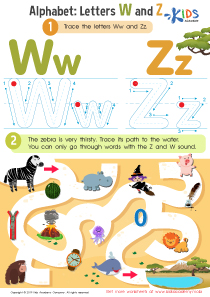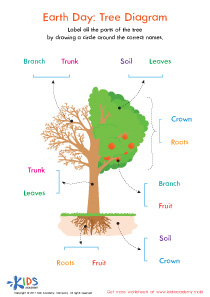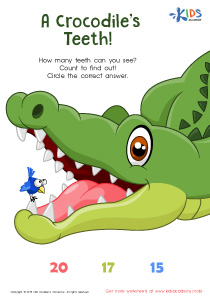Science Lessons | Plants for 8-Year-Olds
6 results
Dive into the captivating world of greenery with our "Plants for 8-Year-Olds" series! Tailored specifically for curious young minds, this collection engages children with interactive worksheets, enchanting educational videos, and fun assessment quizzes. From the journey of a tiny seed to the majesty of towering trees, your child will explore the life cycle of plants, understand photosynthesis, and even learn how plants contribute to our planet's ecosystem. Ideal for budding botanists, this series promises a comprehensive and enjoyable learning experience. Let's nurture your child's green thumb and deepen their appreciation for nature with "Plants for 8-Year-Olds."
Discover the Wonders of Plants: A Journey for 8-Year-Olds
In the bustling world of an 8-year-old, where curiosity meets endless energy, finding educational content that is both engaging and informative can be a challenge. However, our lessons on Plants for 8-Year-Olds are tailored to bridge that gap, offering a comprehensive learning experience through interactive worksheets, captivating educational videos, and stimulating assessment quizzes. This carefully curated content is not just a means to impart knowledge but a gateway to sparking a lifelong interest in the natural world.
Why Are Our Lessons on Plants for 8-Year-Olds Beneficial?
Engaging Content
At the heart of our lessons are interactive worksheets designed with 8-year-olds in mind. These worksheets aren't just about answering questions; they're about embarking on an adventure. Each sheet is a canvas for young minds to explore, filled with colorful illustrations and tasks that encourage hands-on learning. Whether it's through matching leaf shapes, coloring in different plant parts, or connecting flowers to their pollinators, children learn through doing, which enhances memory retention and makes the learning process enjoyable.
Visual Learning
We understand that children are visual learners, and our educational videos are a testament to this understanding. These videos bring the world of plants to life right before their eyes. Through stunning visuals and clear, friendly narration, concepts such as photosynthesis, the life cycle of a plant, and the importance of biodiversity are demystified. Watching a seed grow into a plant or seeing how bees pollinate flowers can turn abstract concepts into tangible realities for young learners, fostering a deeper understanding and appreciation for the natural world.
Assessment for Progress
Learning is not just about acquiring information; it's about understanding and applying that knowledge. Our assessment quizzes serve as checkpoints, helping children and their guardians gauge how much they've learned and what concepts might need a little more attention. These quizzes are crafted to be fun and interactive, encouraging children to see them as challenges rather than chores. By integrating immediate feedback, children can learn from their mistakes, which is a crucial part of the learning process.
Encouraging Curiosity and Responsibility
One of the most significant benefits of our Plants for 8-Year-Olds lessons is the cultivation of curiosity and responsibility towards the environment. As children learn about different plants and their roles in ecosystems, they begin to see themselves as part of a larger whole. This understanding can foster a sense of responsibility for taking care of the environment, starting with the plants and green spaces around them.
In conclusion, our lessons on Plants for 8-Year-Olds are more than just educational tools; they are stepping stones towards nurturing informed, responsible, and curious future adults. By engaging with our interactive worksheets, educational videos, and assessment quizzes, children not only learn about the fascinating world of plants but also develop a love for learning and an appreciation for the natural world that will stay with them for years to come.















